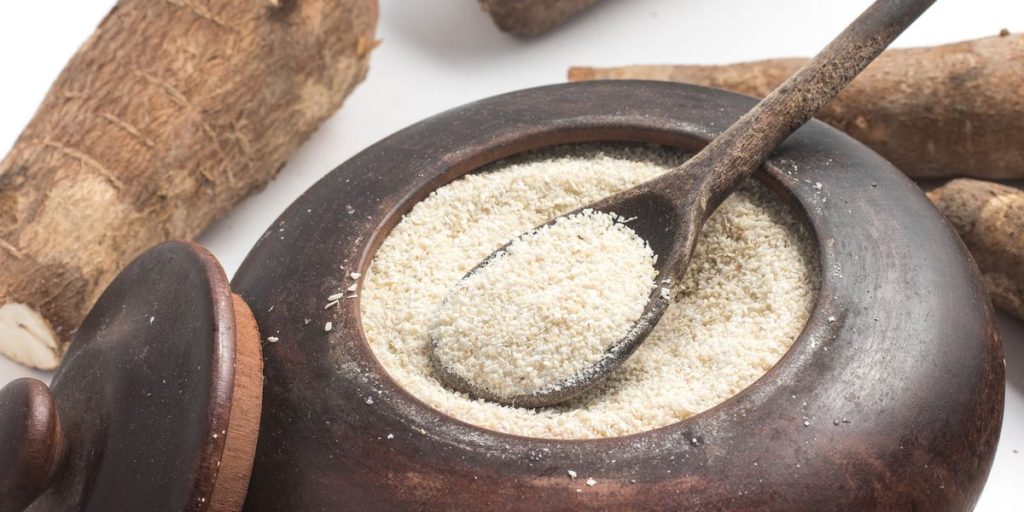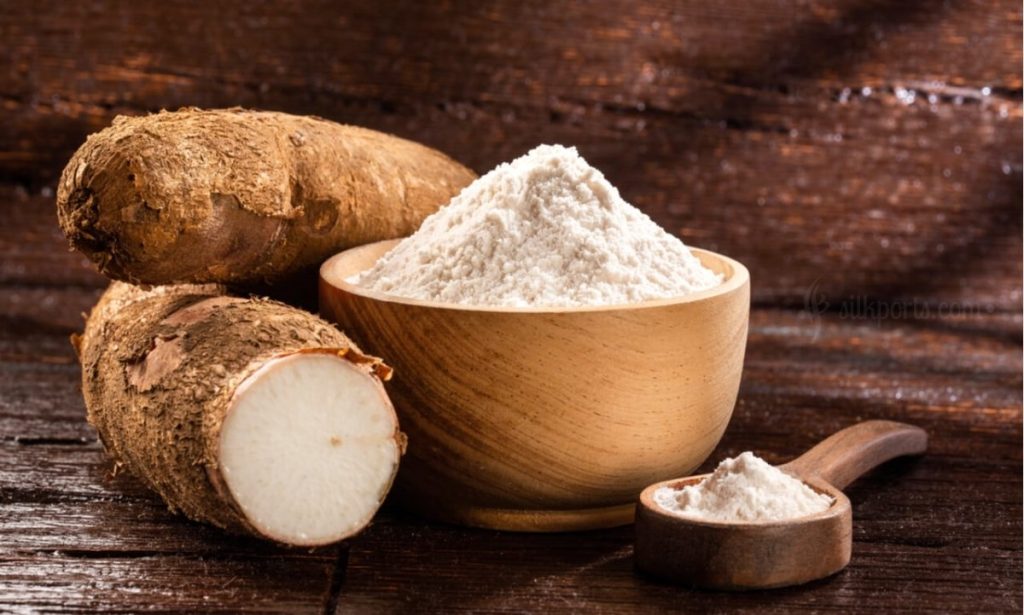If you follow a low FODMAP diet, you may be looking for new and interesting foods to add to your repertoire. Cassava flour is a good option as it is gluten-free and contains no FODMAPS. However, there are a few things to consider before using it in your cooking. This blog post will give you the information you need to decide if cassava flour is right for you.

Table of Contents
What Is Cassava Flour And Where Does It Come From?
Cassava flour is a gluten-free, grain-free, nut-free natural flour made from whole cassava root. It’s a versatile substitute for wheat and other grains, providing a lighter texture to recipes while also boosting nutrition. It’s also great for baking because of its neutral taste and high nutrient density.
Cassava flour originally comes from South America where the root has been part of the traditional diet for centuries. Now it is being used in many countries around the world as an alternative to wheat flour in nutritious baked goods like breads, cakes and cookies.
As awareness increases around the healthy benefits of using this ancient root, it promises to become even more popular in households everywhere!
How Is Cassava Flour Made And What Does It Taste Like?
Cassava flour is made from the tubers of the cassava plant, a root vegetable native to tropical parts of the Americas and Africa. After it is harvested, the skin is removed and roots are washed, grated or shredded, and dried. The resulting substance must be fully dried before it can be grounded into a powder that can be used for baking.
Cassava flour has a mild nutty flavor that pairs well with sweet recipes like cakes, pies, and cookies. It also works well in savory recipes like pancakes or breads. With its impressive nutrition label, cassava flour is an excellent addition to many dishes as a gluten-free alternative wheat flour or cornstarch.
Is Cassava Flour Low Fodmap:
Yes, cassava flour is becoming increasingly popular as an alternative for those looking for a gluten and grain-free flour, especially for individuals with dietary restrictions. It is generally considered low fodmap and suitable for those on the restrictive diet.
However, caution must be exercised when baking with cassava flour as it—like all flours—can cause digestive discomfort if consumed in too high of quantities. Moderation is key when using and enjoying cassava flour products to get the greatest benefits without causing a flare up of any gastrointestinal issues.

How Can You Use Cassava Flour in Recipes, Both Sweet and Savory Dishes Alike?
Cassava flour is not only a great gluten-free alternative for many of your favorite dishes, it’s also surprisingly versatile. In savory recipes, cassava flour can be used as a thickener for soups and stir-fries, making them heartier and packed with flavor. It can even be used in place of wheat flour to make battered fish and crusts for pies, or to thicken pan sauces.
Sweet dishes are just as much fun; cassava flour is perfect when added to pancakes or muffins to give them a pillowy texture. Even cookies and cakes turn out moist and gooey when you swap out regular wheat flour for cassava flour.
Whether you’re looking for a healthier alternative to traditional baking methods or are simply looking to experiment, you’ll find that cassava has endless possibilities!
Read more:
Is Almond Flour Low FODMAP? Unlock the Mysteries of Almond Flour
Are There Any Potential Side Effects of Consuming Cassava Flour That You Should be Aware of Before Eating It Regularly?
Despite its health benefits and as a gluten-free alternative to regular wheat flour, there are still potential side effects of consuming cassava flour. High doses of cassava flour may result in liver damage due to the presence of toxic compounds known as glucoside cycloartenol.
Additionally, some people report digestive problems including nausea, constipation or diarrhea due to difficulty digesting complex carbohydrates found in tubers like cassava. For this reason it is important to consume cassava flour in moderation, if at all.
However, when consumed in smaller amounts with other grains and fruits and vegetables, the risks are greatly mitigated which ensures the best balance between flavor and safety.
Conclusion
In conclusion, cassava flour is a great alternative to wheat flour and adds a distinct flavor to dishes. Not only is it suitable for those with dietary restrictions, but it also adds texture, flavor, and nutrition that would otherwise be missing. Although there are potential side effects of consuming cassava flour regularly, such as digestive and skin issues should be discussed with a healthcare professional.
Regardless of all this, the versatility, taste and nutritional benefits of cassava flour make it an ideal cooking ingredient once you become familiar with its unique properties. With a few simple tricks and recipes you can find online or in cookbooks, you can start experimenting with this delicious superfood today!
References:
https://my.clevelandclinic.org/health/treatments/22466-low-fodmap-diet
https://www.hopkinsmedicine.org/health/wellness-and-prevention/fodmap-diet-what-you-need-to-know








